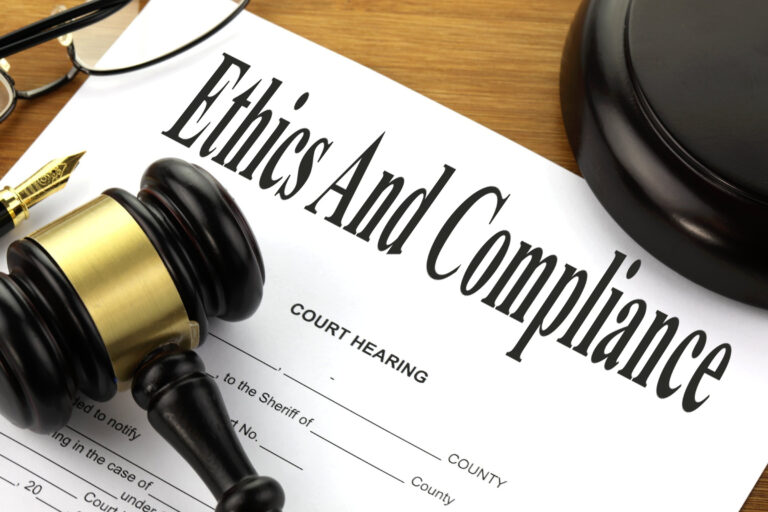Introduction
Definition of a personal injury lawsuit
A personal injury lawsuit is a legal action taken by an individual who has suffered physical or psychological harm due to the negligence or intentional misconduct of another party. It is a civil case that seeks compensation for the damages incurred, including medical expenses, lost wages, pain and suffering, and other related costs. Personal injury lawsuits can arise from various incidents such as car accidents, slip and falls, medical malpractice, or defective products. The purpose of filing a personal injury lawsuit is to hold the responsible party accountable for their actions and to obtain fair compensation for the victim’s injuries and losses.
Importance of filing a personal injury lawsuit
Filing a personal injury lawsuit is of utmost importance for individuals who have suffered harm due to the negligence or wrongdoing of others. This legal action allows victims to seek justice and hold the responsible party accountable for their actions. By filing a lawsuit, injured individuals can pursue compensation for medical expenses, lost wages, pain and suffering, and other damages they have incurred. Additionally, a personal injury lawsuit can help raise awareness about the dangers or negligence involved, potentially preventing similar incidents from occurring in the future. It is crucial to consult with an experienced personal injury attorney to navigate the complex legal process and ensure the best possible outcome in a personal injury case.
Overview of the personal injury lawsuit process
The personal injury lawsuit process can be complex and overwhelming for those who are unfamiliar with it. This article aims to provide an overview of the steps involved in filing a personal injury lawsuit. It begins with the initial consultation with a personal injury attorney, where the attorney evaluates the case and advises the client on the best course of action. Next, the attorney will gather evidence and build a strong case to support the client’s claim. This may involve collecting medical records, interviewing witnesses, and consulting with experts. Once the case is prepared, the attorney will file a complaint with the appropriate court, initiating the lawsuit. From there, the parties will engage in a process called discovery, where they exchange information and evidence related to the case. This may include written interrogatories, depositions, and requests for documents. After discovery, the parties may attempt to settle the case through negotiation or alternative dispute resolution methods. If a settlement cannot be reached, the case will proceed to trial, where a judge or jury will determine the outcome. Throughout the process, it is important for the client to stay informed and communicate regularly with their attorney. By understanding the personal injury lawsuit process, individuals can better navigate their legal journey and seek the compensation they deserve.
Preparation

Gathering evidence
In order to build a strong personal injury lawsuit, gathering evidence is a crucial step. This involves collecting all relevant information and documentation that supports your claim. This may include medical records, photographs of the accident scene, witness statements, and any other evidence that demonstrates the negligence or fault of the responsible party. It is important to gather this evidence as soon as possible to ensure its accuracy and availability. Additionally, consulting with a personal injury attorney can provide guidance on what specific evidence is necessary to strengthen your case. By meticulously gathering evidence, you increase your chances of obtaining a favorable outcome in your personal injury lawsuit.
Identifying potential defendants
Identifying potential defendants is a crucial step in the process of filing a personal injury lawsuit. In order to hold someone legally responsible for your injuries, you must first determine who may be at fault. This involves conducting a thorough investigation to identify individuals, companies, or entities that may have contributed to your accident or injury. Potential defendants can include negligent drivers, property owners, manufacturers of defective products, or even government agencies. By identifying potential defendants, you can build a strong case and increase your chances of obtaining the compensation you deserve.
Consulting with a personal injury attorney
Consulting with a personal injury attorney is a crucial step in the process of filing a personal injury lawsuit. A skilled attorney specializing in personal injury law can provide valuable guidance and support throughout the legal proceedings. During the consultation, the attorney will review the details of the case, assess the potential for a successful lawsuit, and advise on the best course of action. They will also explain the legal rights and options available to the injured party, ensuring they are well-informed before making any decisions. Additionally, the attorney can handle all communication with insurance companies and opposing parties, relieving the injured party of the stress and burden of dealing with these complex matters. By consulting with a personal injury attorney, individuals can ensure that their rights are protected and increase their chances of obtaining fair compensation for their injuries.
Filing the Lawsuit

Drafting the complaint
After completing the initial investigation and gathering all the necessary evidence, the next step in filing a personal injury lawsuit is drafting the complaint. The complaint is a legal document that outlines the details of the case, including the parties involved, the alleged injuries, and the legal basis for the claim. It is important to carefully draft the complaint to ensure that all relevant information is included and that it complies with the court’s formatting and filing requirements. Additionally, the complaint should clearly state the damages sought and the relief being requested. A well-drafted complaint sets the foundation for the entire lawsuit and can significantly impact the outcome of the case.
Filing the complaint with the court
Filing the complaint with the court is a crucial step in the process of filing a personal injury lawsuit. This is where the plaintiff officially initiates the legal action by submitting a written document, known as a complaint, to the court. The complaint outlines the details of the injury, the parties involved, and the legal grounds for the lawsuit. It is important to ensure that the complaint is accurately and clearly drafted, as any errors or omissions could potentially weaken the case. Once the complaint is filed, the court will serve a copy to the defendant, who will then have a specified period of time to respond. Filing the complaint with the court sets the stage for the subsequent legal proceedings and marks the official start of the lawsuit.
Serving the complaint to the defendant
After the complaint has been filed with the court, the next step in the process of filing a personal injury lawsuit is serving the complaint to the defendant. This involves delivering a copy of the complaint and a summons to the defendant, notifying them of the lawsuit and providing them with an opportunity to respond. The complaint and summons are typically served by a process server or a sheriff’s deputy, who will personally deliver the documents to the defendant. It is important to properly serve the complaint to ensure that the defendant is aware of the lawsuit and has the opportunity to defend against the claims made by the plaintiff. Once the complaint has been served, the defendant will have a specific period of time to respond, usually 20 to 30 days depending on the jurisdiction. Failure to respond within the specified time frame may result in a default judgment in favor of the plaintiff.
Discovery

Interrogatories and requests for production of documents
Interrogatories and requests for production of documents are crucial components of the discovery process in a personal injury lawsuit. Interrogatories are written questions that the parties involved in the lawsuit ask each other, seeking information about the case. These questions help gather facts, clarify issues, and build a strong legal argument. On the other hand, requests for production of documents are formal requests made by one party to the other, asking for the production of specific documents that are relevant to the case. These documents can include medical records, accident reports, insurance policies, and any other evidence that can support or refute the claims made. Both interrogatories and requests for production of documents play a significant role in uncovering the truth, ensuring transparency, and providing a fair and just resolution to the personal injury lawsuit.
Depositions
Depositions play a crucial role in the process of filing a personal injury lawsuit. During a deposition, both the plaintiff and the defendant have the opportunity to give sworn testimony under oath. This testimony is recorded and can be used as evidence during the trial. Depositions allow the attorneys to gather information, assess the credibility of witnesses, and uncover any inconsistencies in the accounts provided. They provide a chance for both parties to ask questions and clarify facts, helping to build a stronger case. Overall, depositions are an integral part of the legal process and play a significant role in determining the outcome of a personal injury lawsuit.
Expert witness testimony
Expert witness testimony plays a crucial role in a personal injury lawsuit. These witnesses are professionals who have specialized knowledge and expertise in a particular field related to the case. Their testimony is considered valuable because it provides objective and expert opinions on matters that may be complex or technical. Expert witnesses can help explain complex medical conditions, reconstruct accidents, and assess the extent of damages. Their testimony can greatly influence the outcome of a personal injury lawsuit, as it can provide the jury with a clear understanding of the facts and help them make informed decisions. Therefore, expert witness testimony is often sought after and given significant weight in personal injury cases.
Negotiation and Settlement

Demand letter
A demand letter is a crucial step in the process of filing a personal injury lawsuit. It is a formal document that outlines the details of the injury, the damages suffered, and the compensation being sought. The purpose of the demand letter is to inform the responsible party of the injuries sustained and to request a fair settlement to avoid litigation. The letter should be concise, clear, and persuasive, providing evidence of the negligence or wrongdoing that caused the injury. It is important to include all relevant information and supporting documentation, such as medical records, bills, and witness statements. The demand letter sets the tone for negotiations and can be a powerful tool in resolving a personal injury case without going to court.
Negotiating with the insurance company
Negotiating with the insurance company is a crucial step in the process of filing a personal injury lawsuit. After gathering all the necessary evidence and documentation, it is important to engage in negotiations with the insurance company representing the at-fault party. This involves presenting a strong case and advocating for fair compensation for the injuries and damages suffered. Skilled negotiators will work to reach a settlement that adequately covers medical expenses, lost wages, pain and suffering, and other related costs. It is essential to have a thorough understanding of the legal rights and options available, as well as the ability to effectively communicate and negotiate with the insurance company. By engaging in negotiations, individuals can strive to achieve a favorable outcome and secure the compensation they deserve.
Settlement agreement
A settlement agreement is a legally binding contract that is reached between the plaintiff and the defendant in a personal injury lawsuit. It is a resolution that both parties agree upon to avoid going to trial. In this agreement, the defendant agrees to pay a certain amount of money to the plaintiff in exchange for the plaintiff dropping the lawsuit and releasing the defendant from any further liability. The settlement agreement typically outlines the terms and conditions of the settlement, including the amount of compensation, the payment schedule, and any other relevant details. It is important to carefully review and negotiate the terms of the settlement agreement to ensure that your rights and interests are protected.
Trial

Jury selection
Jury selection is a crucial step in the process of filing a personal injury lawsuit. It is during this phase that potential jurors are chosen to serve on the jury for the trial. The goal of jury selection is to select a fair and impartial jury that will objectively evaluate the evidence and make a decision based on the facts presented. Attorneys for both the plaintiff and the defendant have the opportunity to question potential jurors to determine any biases or prejudices that may affect their ability to be impartial. This process ensures that the jury is composed of individuals who can make an unbiased judgment in the case. The selection of a jury is a strategic process that requires careful consideration and analysis by both sides to ensure a fair trial.
Opening statements
During the opening statements in a personal injury lawsuit, both the plaintiff’s and defendant’s attorneys have the opportunity to present their case to the jury. This is the first time that the attorneys can outline the key facts and arguments that they will be presenting throughout the trial. The opening statements serve as an introduction to the case and help set the tone for the rest of the proceedings. It is during this phase that the attorneys try to capture the jury’s attention and establish a strong foundation for their respective positions.
Presentation of evidence
In a personal injury lawsuit, the presentation of evidence is a crucial step in establishing the strength of your case. This is where you and your attorney will gather and present all relevant evidence to support your claims. This evidence may include medical records, photographs, witness testimonies, expert opinions, and any other documentation that can help prove the negligence or wrongdoing of the defendant. The presentation of evidence is typically done during the trial phase of the lawsuit, where both parties have the opportunity to present their case before a judge or jury. It is important to ensure that all evidence is properly organized, authenticated, and presented in a clear and compelling manner to maximize its impact on the outcome of the lawsuit.



















































